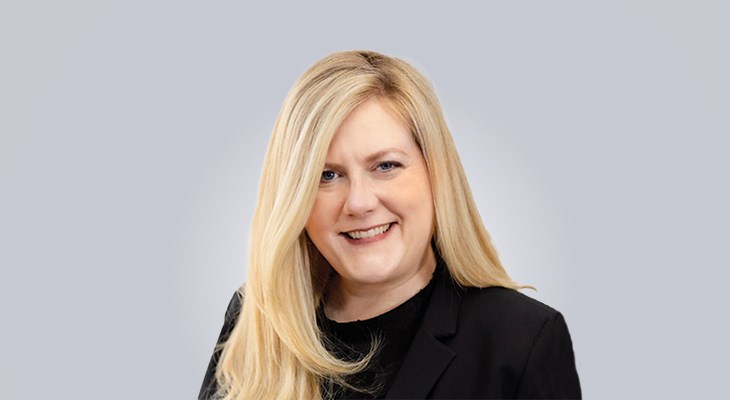Kathleen Craig, founder and CEO Plinqit, has raised more than $10 million in venture funding for the SaaS fintech company, which licenses its software to banks and credit unions across the country.
Craig says overall, fintech has recently experienced a rightsizing after the inflated valuations companies in the space were realizing 24 months ago.
"What's happened now is, it's rightsizing, which is a nice thing for folks like us in the Midwest who have always run things right and not had an inflated valuation," Craig said during the Detroit Smart Business Dealmakers Conference. "So, it's been a nice thing for us."
The company's latest $5 million Series A round this past year she describes as "wonderful when it happened (but) painful along the way."
"I didn't realize fintech in Michigan that it wasn't as far along as I thought," she says. "And when I started raising capital, everyone wanted us to be B2C. So, every investor wanted us to be the Uber of banking. But my background is I was the VP of e-services at a bank. I knew very well that banks, the infrastructure, it's not a taxi ride, and it's not a book. It's a highly regulated, deep industry that wasn't going to be disrupted in the same way. And so, it was a journey."
There was, however, a shift in the industry about three years ago to partnership and partnering with banks, which she says made their own funds to invest in companies like Plinqit that were supporting them rather than trying to disrupt them.
"That's when we were finally able to raise a true round is by a fund that's made up of 80 banks as our LPs, which is perfect for us, because then they can become clients also as well as investors," she says.
Looking back on the company's fundraising, Craig says she feels lucky that she bootstrapped the company until it was post revenue. She's also grateful that she had good attorneys early.
"One of the best pieces of advice I got is when I was first raising outside capital, I asked my attorney what it would do to me, like my share. And he said, Well, I'm the company's lawyer now not yours," Craig says. "And it was a moment as a founder where I went, Oh, yeah, we're now two separate entities. I've raised outside capital. This is the company and this is me, and I need my own legal and my own folks advising me on dilution and preferences and all the things that happen as you raise rounds to be aware of what was happening to me, but that was going to be separate. And no one in the company was going to be looking out for Kathleen anymore."
She says something that she would do different would be to go all-in with the venture earlier in the process.
"I had another really good mentor that said you can't have one foot in and one foot out," Craig says. "I kept my job at the bank in the early days. I made us an LLC in the early days. I was hedging on whether or not I was really going to do this. That kept capital at bay that I could have gotten because I was one foot in one foot out. And then, eventually, when we became a C Corp, I committed — left the job, the safe job, and went all in — things really started to happen."
She's also the daughter of an entrepreneur. She'd seen the highs and lows of the entrepreneurial journey, and liked her safe bank job. So, it took time to go all in.
Something she's glad she did early on was get a clear understanding of the company's share structure and how it would affect not only her, but her employees. A person with Invest Detroit, her first investor, talked with her about what would happen to her shares, what preferences are and what they could do if she accepted them.
"And so by doing that for me really early, before I had taken on a large amount of capital, I don't have those things in my cap table," Craig says. "I don't have sneaky things that will keep me from that. And the same thing for my employees, which is really important to me. The options that they have, I want them to be worth something when we have an event. And so I've been able to avoid that because of that advice."




